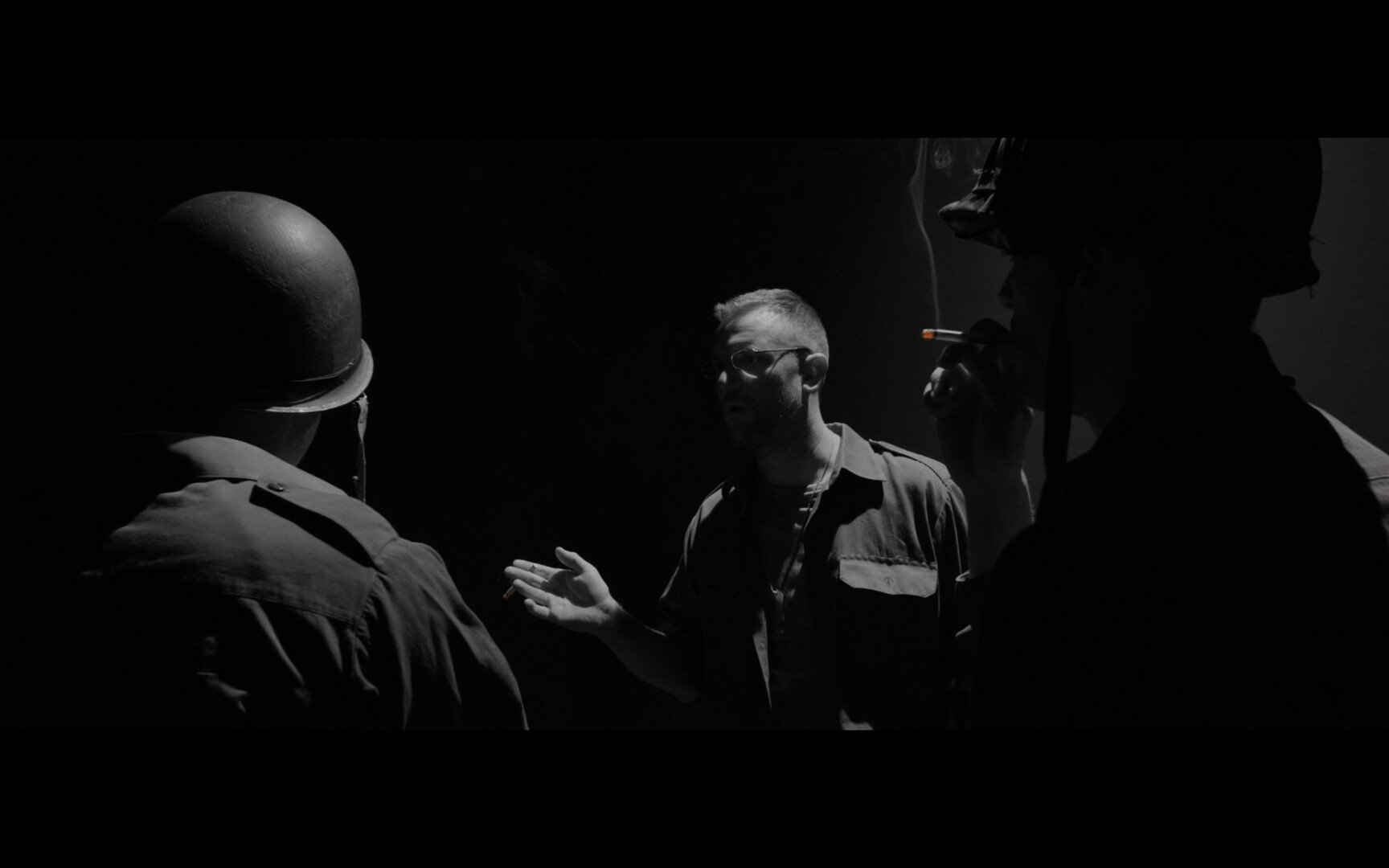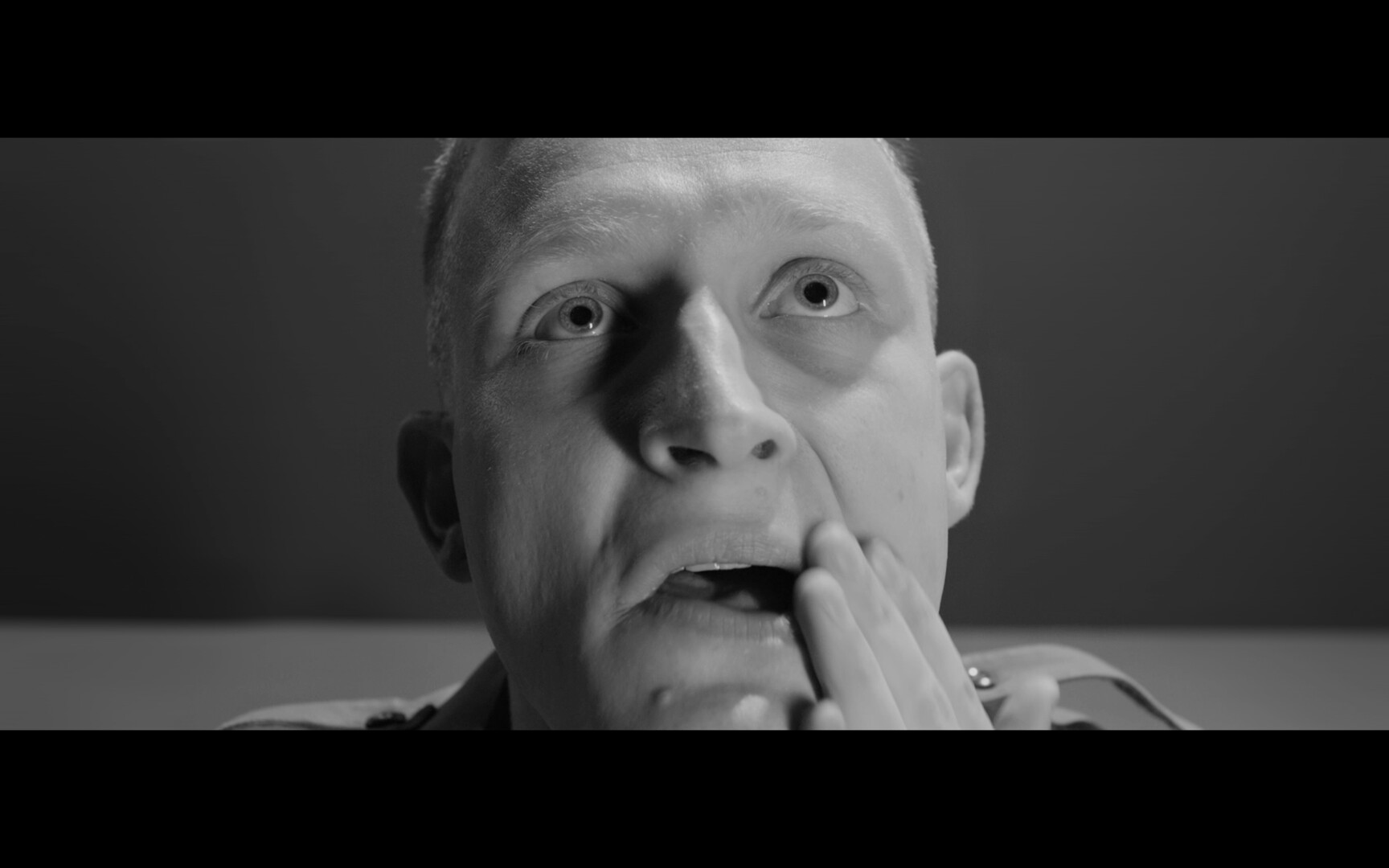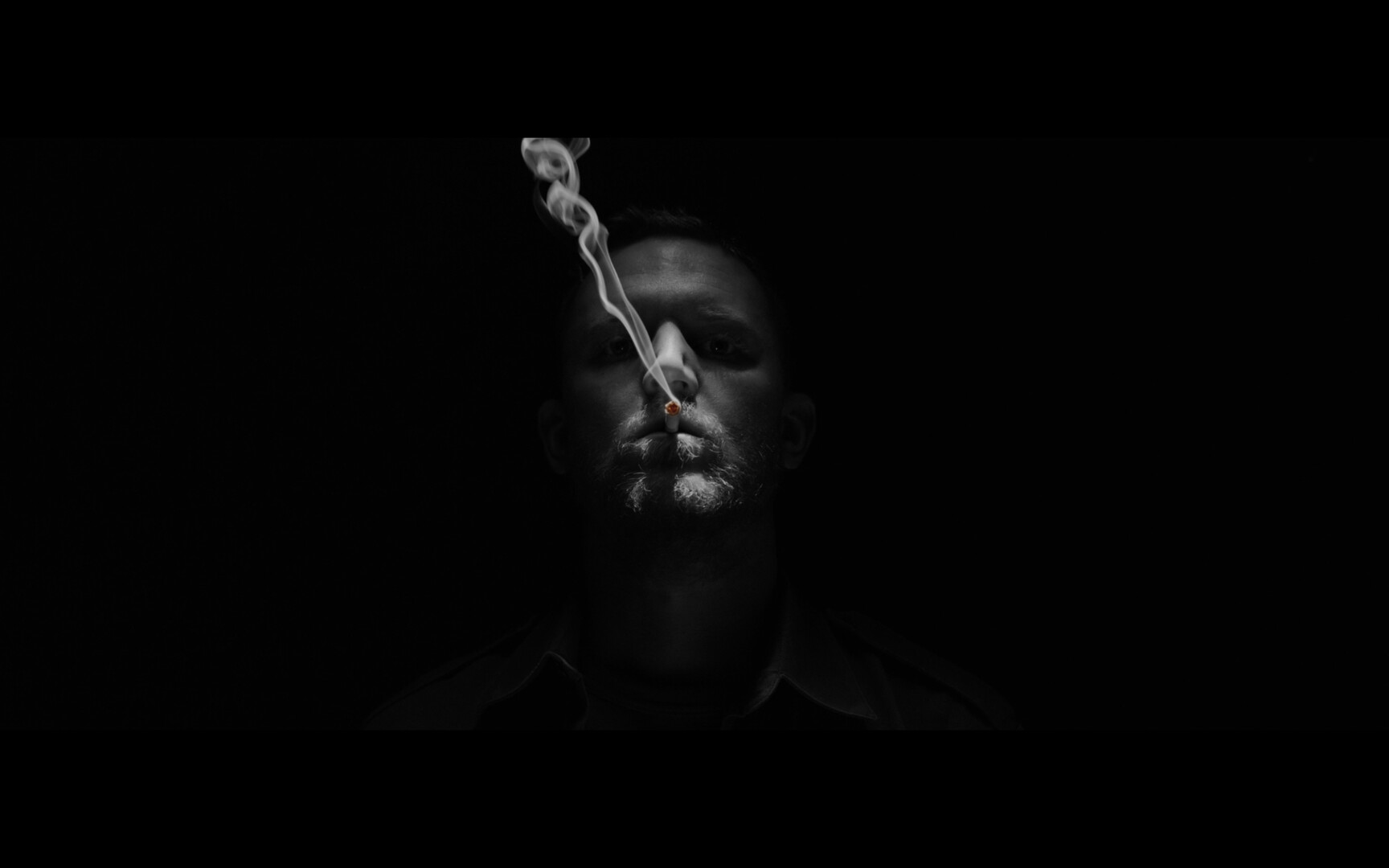Written and directed by Dylan Tyncherov, Banality of Evil is a short film that stars Chris Pender, Jonathan Hearns & Alex Gynp. The film finds three soldiers trapped in a dark room with no chance of escape. As the grim reality of the situation sets in and options dwindle, conflict and mistrust take root within the group that will change everything.
Banality of Evil is actually a term coined by political thinker Hannah Arendt. Referring to the idea that normal people are perfectly capable of committing shocking atrocities, Dylan Tyncherov takes this strand of thought and makes a terrific film about it where soldiers finally realise the nature of atrocities that they may have committed in the field. It is fascinating to see an individual, trained to kill and survive most forms of mental torture, realizing that he is in fact the epitome of evil and his existence is nothing more than a bane of existence.
The acting is fantastic across the board. Chris Pender, Jonathan Hearns & Alex Gynp as the three soldiers with wildly different personalities are fascinating and it is their coming to terms with their unique predicament, what makes the film unique. Starting the story as confused souls trying to make sense of their predicament, each character reacts to the situation in a different way. One has a nihilistic approach to it all, whilst the other turns to God to find solace. The third chooses rationality and while each of them try to win desperately over each other, what really comes out on top at the end is their collective realisation that they are never getting out of here alive.

For a film that has a runtime of less than half an hour, Banality of Evil expertly summarises and highlights several key ideas within its narrative. The script by Dylan Tyncherov is sharp and poignant; keeping exposition to a minimum, Tyncherov puts the audience right into the box with the characters as they each go through their mental degeneration. Devoid of power that they commanded in the real world, the trio will soon find their worst demons and desires coming to haunt them in this dark, desolate void from which there is no escape. The shocking ending turns the entire narrative on its head. While the twist may leave you with a flurry of questions, it works perfectly within the narrative that Tyncherov is trying to set up.
While its story, script and narrative are obviously top notch, it is in the visual department that the film manages to be most impressive. First, the editing is crisp, keeping the erratic movements of the characters within the box in frame whilst they slowly lose their minds. Equally impressive is the pacing that condenses what seems to be days and weeks inside the box into a few minutes of claustrophobic carnage. Tyncherov manages to capture the painful slowness of time passing inside the claustrophobic hell in a way that keeps us on our toes, peppering the narrative with just enough drama and conflict to get the point across.

The black and white hues of the box our characters find themselves in has multiple meanings in and of itself. The colourless existence both signifies the endless hell the characters find themselves in as well as the sheer helplessness of their existence. There is no escape from the box and shockingly, the characters don’t feel any of the natural urges they do in the real world here. However, what they are left with are their minds as their fears and atrocities and insecurities and doubts come back to haunt them. Like a serial killer slowly going insane, the soldiers will turn on one another as desperate attempts to escape only highlight the futility of any such endeavour.
Thus, Banality of Evil is a film that goes where very few horror films manage to do so. Set the monsters and killers aside, the greatest horror is one hidden within our very minds and the film manages to illustrate this point in a way that will stay with you long after it has ended. With no entrances, exits or answers, the only thing the soldiers can do is look within themselves and it is here that they find the sheer evil and pointlessness of their own existence. Dylan Tyncherov has made a fascinating film, one that manages to impress in more ways than one.









